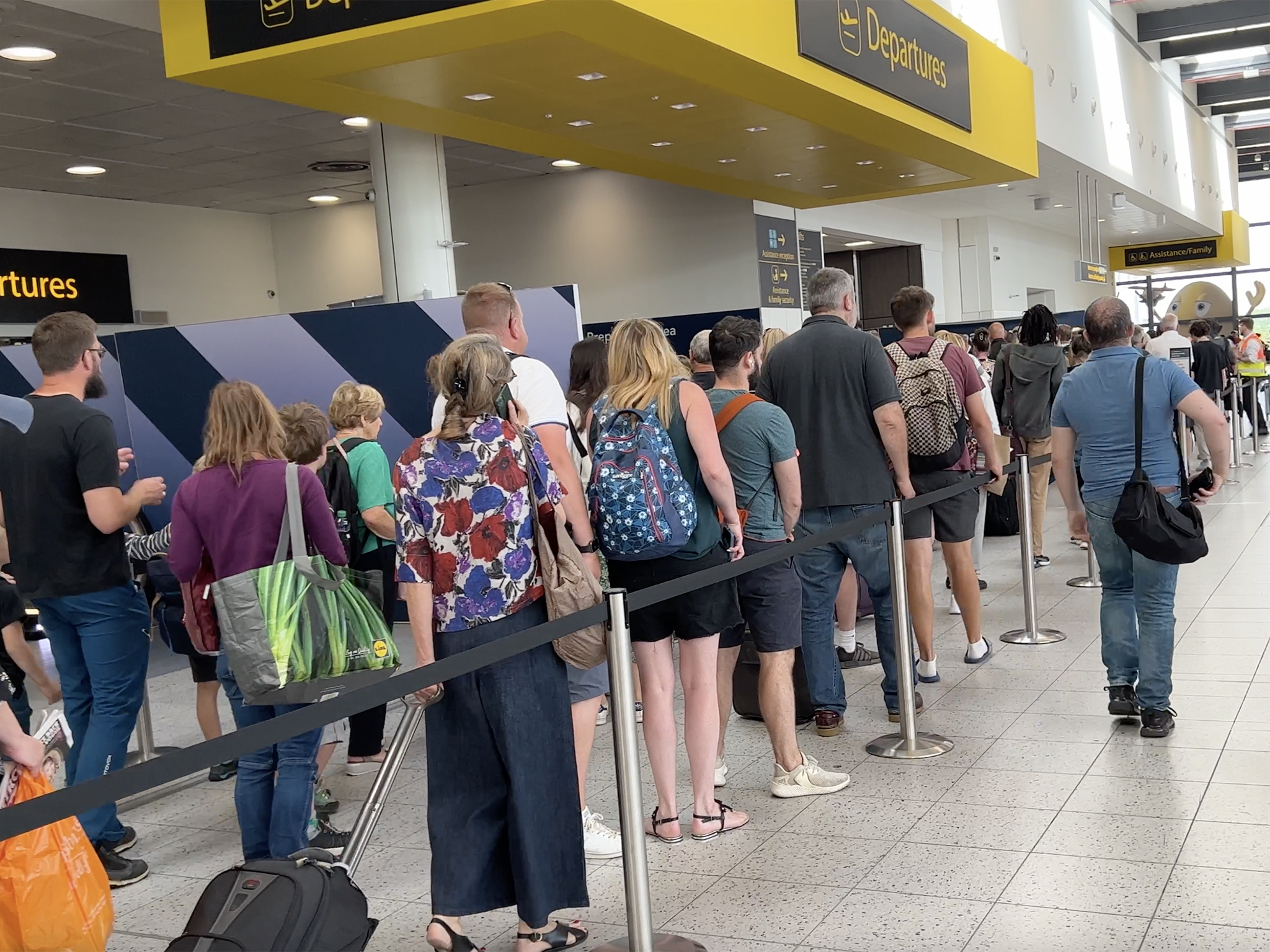Gatwick chaos shows the true value of the working classes
Letters to the editor: our readers share their views. Please send your letters to letters@independent.co.uk

Just now the news headlines reported that Gatwick airport has to cut hundreds of flights because of a lack of staff.
Well how interesting. It is 170 years ago that Marx and Engels drew attention to the fact that the working class is the one actually doing the work and creating the economic drive and the profit, and that without them rich people could not get rich, nor could any government provide the necessary services.
The pandemic showed how fragile the care sector is and how badly paid care workers are, now it shows that however rich you are and however many travel industry-related shares you hold, without the working class they are of no avail and start losing their value.
Should we do a bit more rational thinking?
Jenny Backwell
Hove
The alternative reality of Boris Johnson
Lord Geidt understood his role to be independent. The prime minister saw things differently: Geidt was there as a sounding board for potentially less ethical policies. Alternative reality is a common theme in Johnson’s political career, and has undoubtedly contributed to his success. And there is no denying that his ability to create convenient and plausible alternative realities using a mixture of forceful bluster, untruths, colourful imagery and the patter of a snake oil salesman is a considerable talent.
However, more recently this modus operandi has worn thin and now convinces fewer and fewer people apart from his own cabinet. Johnson persists in arguing that his draft legislation overriding the Northern Ireland protocol is legal, claiming that this device was imposed by the EU and now threatens the NI peace process. Like so many other Johnsonian alternative realities, it does not match the facts, including: the Rwanda solution is legal and humane, the economy is strong, Brexit is working, Partygate was all in a day’s work, levelling up is just around the corner and 148 no-confidence votes are of no consequence.
Whether the wider electorate has cottoned on to the prime minister’s tactics should become clearer next week.
Graham Lane
London
Regarding next week’s rail strikes, a Department for Transport spokesperson made the point that “Taxpayers across the country contributed £16bn to keep our railways running throughout the pandemic while ensuring not a single worker lost their job”, as though that should be a reason for staff to just roll over and accept whatever is imposed upon them, but one of the main motivations behind the action (apart from the derisory sub-inflation pay rise being offered to people who worked through said pandemic – exposing themselves to risk every day) is to resist proposed cuts to maintenance staff, to station staff and to service provision (making trains more crowded just as commuter numbers are climbing again).
Let us not forget that the aviation industry (environmentally unfriendly and yet subsidised to the tune of £10bn every year, pandemic or not, because aeroplane fuel remains, inexplicably, untaxed) laid off a large number of airport and ground support staff during the pandemic and is consequently now struggling to meet customer demand. If the chaos we’re seeing in our airports were to be reproduced in railway stations up and down the country then that truly would bring Britain to a grinding halt. And any cuts to railway station and Underground staff, particularly, would make travel for disabled passengers far more difficult than necessary, as often highlighted by your correspondent James Moore and vividly illustrated by this morning’s news of the death of a disabled man at Gatwick airport on Wednesday.
Rail unions are often unpopular but people need to remember that, besides protecting their members’ interests, their driving motivation is and always has been serving the public and ensuring passenger safety.
Julian Self
Milton Keynes
ID cards would be unnecessary
Whilst always open to new ideas, I find Mary Dejevsky’s suggested solution to the asylum seeker/Rwanda issue, including the introduction of ID cards, unnecessary. Why not simply do as certain European countries outside the EU, like Norway, do and sign up to the Dublin Agreement? That way we could legally return people seeking asylum to France or Belgium. Or did the French object to Lord Frost’s negotiating style and block this option?
Mr T Foster
Colchester






Join our commenting forum
Join thought-provoking conversations, follow other Independent readers and see their replies
Comments